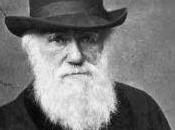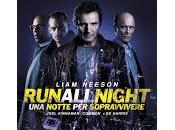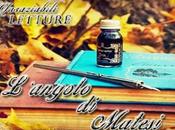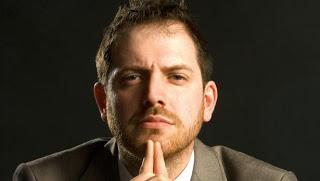 D) Come è stata la tua prima esperienza come scrittore? È stata difficoltosa?
J) Uno degli aspetti migliori della scrittura è che non hai bisogno di molto denaro, di attrezzatura o del lavoro di altre persone, è qualcosa che chiunque, con carta e penna, può fare. Quindi, non è stato difficile iniziare ed ero abbastanza soddisfatto, eccitato e sorpreso, penso, da ciò che ha iniziato a comparire quando l’ho fatto, perciò non è stato così difficile continuare. Ovviamente, rifinire, migliorare ed elaborare il testo, per ottenere l’effetto che volevo e realizzare realmente un intero libro, ha richiesto molto lavoro, tempo e pensiero.
D) Come è stata la tua prima esperienza come scrittore? È stata difficoltosa?
J) Uno degli aspetti migliori della scrittura è che non hai bisogno di molto denaro, di attrezzatura o del lavoro di altre persone, è qualcosa che chiunque, con carta e penna, può fare. Quindi, non è stato difficile iniziare ed ero abbastanza soddisfatto, eccitato e sorpreso, penso, da ciò che ha iniziato a comparire quando l’ho fatto, perciò non è stato così difficile continuare. Ovviamente, rifinire, migliorare ed elaborare il testo, per ottenere l’effetto che volevo e realizzare realmente un intero libro, ha richiesto molto lavoro, tempo e pensiero.D) Quanto ti è stata utile l’esperienza come produttore televisivo nella stesura dei tuoi romanzi? J) Non estremamente utile, non dire. Ho avuto la possibilità di vedere molte persone esperte lavorare con i copioni ed ottenere pezzi scritti con il minor numero possibile di parole, che è stata un’esperienza positiva. Penso di aver imparato molto sul tempismo, su quando è necessario tagliare e quando, invece, si può lasciare, su quando procedere e quando terminare una scena. D) Quali sono le differenze che più ti hanno colpito tra il mondo televisivo e quello letterario? J) La differenza maggiore, secondo me, è che la TV è sempre uno sforzo d’insieme – ci sono produttori, editor, ogni tipo di tecnico e, nel caso, attori teatrali e scrittori e tutti collaborano e apportano diverse abilità al lavoro. Scrivendo si spera di ricevere molti contributi importanti dall’editor e dai lettori di cui ti fidi, ma continui a fare la maggior parte del lavoro da solo. Questo ti conferisce molta libertà e controllo, ma anche molte responsabilità. D) Il genere Fantasy espone ogni autore al confronto con i grandi nomi del genere, che negli anni mantengono saldamente il titolo di “re del Fantasy”. Allo stesso tempo, però, sta vivendo una nuova giovinezza, grazie soprattutto agli autori che hanno saputo rinnovarlo e attualizzarlo, senza però rovinarne la magia. Qual è la tua opinione? Perché hai scelto di cimentarti proprio in questo genere? J) Penso di averlo sempre amato, anche se a volte mi sono sentito frustrato dal modo in cui si ripete. Ma la gioia di una struttura ben consolidata è che esiste una grande quantità di variazioni sul tema, se guardi materiale da un punto di vista leggermente diverso, che è poi quello che tento di fare. Nulla è più facile che sorprendere le persone in un campo familiare, dove pensano di sapere esattamente cosa aspettarsi.
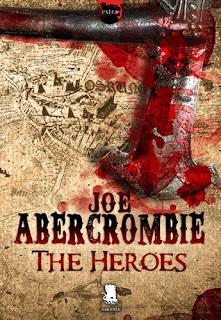 D) Nonostante non sia la tua opera prima, il romanzo che per primo abbiamo letto in Italia è The Heroes. Leggendolo, è facile immaginarne una trasposizione televisiva, come è stato fatto per l’opera di Martin. È in progetto qualcosa del genere? Ti farebbe piacere vedere i protagonisti del tuo libro sullo schermo?
j) Nessun progetto imminente. Un adattamento televisivo o cinematografico è una gran cosa per la carriera, quindi se questa fosse un’offerta di milioni di dollari la mia risposta sarebbe si.
D) Nell’ipotesi di una trasposizione su schermo di The Heroes, vorresti occuparti tu stesso della produzione?
J) L’avrei fatto volentieri se mi fosse stato chiesto dalle persone giuste, ma non ho un desiderio bruciante di farlo. Quando vendi i diritti, dai via tutto e penso di essere più interessato a vedere cosa farebbe un buon produttore cinematografico con il materiale piuttosto che pensare a cosa farei io.
D) La scelta di dedicare un intero libro ad un’unica, magistrale battaglia è particolare: il primo dubbio con cui ci si scontra, leggendo la trama di The Heroes, è che il libro possa risultare, alla lunga, monotono. Dubbio del tutto immotivato, visto che il libro propone una trama ricca e piena di sfaccettature, che mette in luce aspetti delle battaglie che normalmente non vengono trattati. Hai dovuto effettuare ricerche molto approfondite sulle battaglie del passato per poter ricreare uno scenario così realistico?
J) Sono sempre stato un grande lettore di fatti storici e di storia militare in particolare. Infatti, in questi giorni leggo molta più non-narrativa che narrativa. Penso di aver notato una grande differenza nel modo in cui la guerra viene presentata nel Fantasy, con enfasi sulla gloria, sull’eroismo e sul metallo lucente, e la realtà delle battaglie, dove sporco, noia e cambiamenti giocano parti importanti. Volevo scrivere un libro che, in qualche modo, sposasse queste due realtà ed investigasse le differenze.
D) Gli uomini sono i protagonisti assoluti del tuo libro: tranne la comparsa, più o meno marginale, di un paio di maghi, non vi è alcuna creatura fantastica tra le schiere dei due eserciti in campo. Perché hai scelto di non introdurre almeno alcune delle razze che popolano normalmente i libri Fantasy?
J) Spesso nel Fantasy vengono introdotte razze sub-umane estremamente perfide, quindi i nostri eroi possono farne a pezzi orde intere senza troppe preoccupazioni. Nella vita reale i nostri nemici sono sempre altre persone e falciare orde di persone è una cosa difficile e complicata. Suppongo di aver voluto guardare alla realtà di questa constatazione e al costo di questa violenza, sia intermini di vittime che di colpevoli, così ho riempito il libro di persone.
D) A chi ti sei ispirato per creare i personaggi di The Heroes? Curden lo strozzato – che cerca di sempre di fare la cosa giusta, come ai vecchi tempi –, il subdolo principe Calder – politico sibillino e doppiogiochista –, Dow il nero e gli altri, a chi potrebbero essere associati?
J) È sempre difficile definire da dove abbia avuto origine l’idea di un personaggio. Molti personaggi di The Heroes sono apparsi in piccoli passaggi dei miei libri precedenti, ma qui vengono approfonditi maggiormente. La più grande preoccupazione in The Heroes era l’eroismo – nel Fantasy ci sono spesso eroi che sono sempre buoni, eroici in motivazioni, azioni e risultati. Sono partito dall’idea che ben poche persone sono sempre eroiche in ogni situazione, ma ognuno può essere più o meno nobile, o altruista, o coraggioso con il giusto incoraggiamento. Quindi i personaggi sono costituiti da un differente equilibrio di giusto e sbagliato, di nobile ed egoista. Curden lo strozzato cerca sempre di fare la cosa giusta, di stare con i suoi amici, ma il suo codice d’onore lo obbliga a perpetrare azioni che sa essere destinate a finire male. Gorst è un eroe sul campo di battaglia, ma le sue motivazioni sono completamente egoiste.
D) In The Heroes non esiste più l’epica battaglia tra bene e male, ma vediamo combattere due schieramenti tra cui non esiste una netta linea di demarcazione: nessuno è veramente dalla parte della giustizia e la trama politica che si dipana sotto l’intera battaglia fa si che non esistano veramente né vinti né vincitori. Gli eserciti si scontrano perché così è stato loro ordinato e, nel momento della carica, anche gli animi più coraggiosi hanno momenti di scoramento. Cosa vorresti trasmettere ai giovani raccontando una battaglia di questo tipo, che ben poco si discosta dalle battaglie combattute nei secoli dal genere umano?
J) Che stia scrivendo Fantasy o qualsiasi altra cosa, voglio che sembri pertinente, credibile, onesto. Perché sembri reale, voglio che dica qualcosa sul nostro mondo e sulle persone che lo popolano. Nel nostro mondo raramente ci sono parti buone e parti malvagie, ma solo diversi punti di vista e le persone vengono coinvolte nei loro scontri, cercando di dare il massimo. Ho cercato di rispecchiare questa realtà.
D) La casa editrice Gargoyle pubblicherà, a marzo dell’anno prossimo, The Blade Itself, primo capitolo della trilogia The First Law, un’assoluta novità per il pubblico italiano. Potresti, senza rivelarci troppo ovviamente, darci qualche anticipazione? Possiamo aspettarci qualcosa di simile, come toni e ambientazioni, a The Heroes?
J) Certamente, The First Law è ambientata nello stesso mondo di The Heroes, con cui condivide alcuni personaggi. Spero abbia anche un simile modo di avvicinarsi e di concentrarsi su un gruppo di personaggi intenso, complesso e sorprendente, un approccio cruento all’azione e un senso dell’umorismo un po’ dark. Ma è consapevolmente anche una trilogia epic-Fantasy, con magia, mistero, politica e tutta la portata epica che ci si aspetta…
D) In attesa che in Italia arrivino tutte le tue opere, possiamo chiederti a cosa stai lavorando in questo periodo?
J) Non sono mai pigro. Recentemente ho scritto un paio di storie brevi e c’è un’altra trilogia Fantasy in lavorazione. Penso potrebbe necessitare di un po’ di tempo prima di apparire.
D) Grazie per il tempo che ci hai dedicato, è stato veramente un piacere averti come ospite. Vorresti lasciare un saluto ai nostri lettori?
J) È stato un piacere. Grazie per avermi ascoltato e andate a comprare i miei libri…
ENGLISH VERSION
D) Hello Joe, I’m really glad to welcome you on our blog. Would you introduce yourself to the Italian readers?
J) I’m Joe Abercrombie. I’m 37, and live in Bath with my wife and three kids. I was a freelance TV editor for ten years but these days I’m a full time author.
D) Since you started your career as TV producer, what got you into writing?
J) I was an editor, rather than a producer, so I spent a lot of time sitting in dark rooms staring at screens, and felt like I needed something different in my life. Since I’d been very much into fantasy as a kid and had long had some ideas for how I’d go about writing a fantasy series of my own I decided to give it a go. Now, as a writer, I spend a lot of time sitting in dark room staring at screens…
D) Was your first experience as writer hard to accomplish?
J) One of the great things about writing is that you don’t need a lot of money, equipment, or necessarily the work of others, it’s something anyone with a pen and paper can do. So it wasn’t difficult to start and I was quite pleased and excited and, I guess, surprised, by what began to appear when I did, so it wasn’t that hard to continue. Obviously it did take a long time and a lot of work and thought to refine and improve and work out how to achieve the effects I wanted to, and actually get a whole book together.
D) How useful was your TV producer experience during the writing process?
J) Not hugely useful, I wouldn’t say. I’d had the opportunity to see a lot of experienced people working with script, getting pieces of writing down to the very smallest number of necessary words, which was useful experience. And I think I’d learned a lot about pacing, about when to cut and when to leave, how to come in and out of a scene.
D) What are the differences you noticed the most between the television and literary environment?
J) For me the big one is that TV is always an ensemble effort – you have producers, directors, editors, all kinds of technicians, and in the case of drama actors and writers all collaborating and bringing different skills to the job. With writing you hopefully have a lot of important input from your editor and from readers that you trust but you’re still doing the great majority of it on your own. That gives you a lot of freedom and control, but also a lot of responsibility.
D) The Fantasy genre put every author in comparison to the great names that keep the title of “king of Fantasy” along the years. However, the genre is going through a new youth thanks to authors who knew how to renew it and make it close to our times without spoiling its magic. What’s your point about it? Why did you choose to get into this genre?
J) I guess I’ve always loved it, even as I’ve sometimes been frustrated with the way that it can repeat itself. But then the joy of a well-established form is that there is a faithful audience for variations on the theme, if you can come at the material from a slightly different angle, which is what I try to do. It’s nowhere so easy to surprise people as on familiar ground, where they think they know exactly what to expect.
D) Nonostante non sia la tua opera prima, il romanzo che per primo abbiamo letto in Italia è The Heroes. Leggendolo, è facile immaginarne una trasposizione televisiva, come è stato fatto per l’opera di Martin. È in progetto qualcosa del genere? Ti farebbe piacere vedere i protagonisti del tuo libro sullo schermo?
j) Nessun progetto imminente. Un adattamento televisivo o cinematografico è una gran cosa per la carriera, quindi se questa fosse un’offerta di milioni di dollari la mia risposta sarebbe si.
D) Nell’ipotesi di una trasposizione su schermo di The Heroes, vorresti occuparti tu stesso della produzione?
J) L’avrei fatto volentieri se mi fosse stato chiesto dalle persone giuste, ma non ho un desiderio bruciante di farlo. Quando vendi i diritti, dai via tutto e penso di essere più interessato a vedere cosa farebbe un buon produttore cinematografico con il materiale piuttosto che pensare a cosa farei io.
D) La scelta di dedicare un intero libro ad un’unica, magistrale battaglia è particolare: il primo dubbio con cui ci si scontra, leggendo la trama di The Heroes, è che il libro possa risultare, alla lunga, monotono. Dubbio del tutto immotivato, visto che il libro propone una trama ricca e piena di sfaccettature, che mette in luce aspetti delle battaglie che normalmente non vengono trattati. Hai dovuto effettuare ricerche molto approfondite sulle battaglie del passato per poter ricreare uno scenario così realistico?
J) Sono sempre stato un grande lettore di fatti storici e di storia militare in particolare. Infatti, in questi giorni leggo molta più non-narrativa che narrativa. Penso di aver notato una grande differenza nel modo in cui la guerra viene presentata nel Fantasy, con enfasi sulla gloria, sull’eroismo e sul metallo lucente, e la realtà delle battaglie, dove sporco, noia e cambiamenti giocano parti importanti. Volevo scrivere un libro che, in qualche modo, sposasse queste due realtà ed investigasse le differenze.
D) Gli uomini sono i protagonisti assoluti del tuo libro: tranne la comparsa, più o meno marginale, di un paio di maghi, non vi è alcuna creatura fantastica tra le schiere dei due eserciti in campo. Perché hai scelto di non introdurre almeno alcune delle razze che popolano normalmente i libri Fantasy?
J) Spesso nel Fantasy vengono introdotte razze sub-umane estremamente perfide, quindi i nostri eroi possono farne a pezzi orde intere senza troppe preoccupazioni. Nella vita reale i nostri nemici sono sempre altre persone e falciare orde di persone è una cosa difficile e complicata. Suppongo di aver voluto guardare alla realtà di questa constatazione e al costo di questa violenza, sia intermini di vittime che di colpevoli, così ho riempito il libro di persone.
D) A chi ti sei ispirato per creare i personaggi di The Heroes? Curden lo strozzato – che cerca di sempre di fare la cosa giusta, come ai vecchi tempi –, il subdolo principe Calder – politico sibillino e doppiogiochista –, Dow il nero e gli altri, a chi potrebbero essere associati?
J) È sempre difficile definire da dove abbia avuto origine l’idea di un personaggio. Molti personaggi di The Heroes sono apparsi in piccoli passaggi dei miei libri precedenti, ma qui vengono approfonditi maggiormente. La più grande preoccupazione in The Heroes era l’eroismo – nel Fantasy ci sono spesso eroi che sono sempre buoni, eroici in motivazioni, azioni e risultati. Sono partito dall’idea che ben poche persone sono sempre eroiche in ogni situazione, ma ognuno può essere più o meno nobile, o altruista, o coraggioso con il giusto incoraggiamento. Quindi i personaggi sono costituiti da un differente equilibrio di giusto e sbagliato, di nobile ed egoista. Curden lo strozzato cerca sempre di fare la cosa giusta, di stare con i suoi amici, ma il suo codice d’onore lo obbliga a perpetrare azioni che sa essere destinate a finire male. Gorst è un eroe sul campo di battaglia, ma le sue motivazioni sono completamente egoiste.
D) In The Heroes non esiste più l’epica battaglia tra bene e male, ma vediamo combattere due schieramenti tra cui non esiste una netta linea di demarcazione: nessuno è veramente dalla parte della giustizia e la trama politica che si dipana sotto l’intera battaglia fa si che non esistano veramente né vinti né vincitori. Gli eserciti si scontrano perché così è stato loro ordinato e, nel momento della carica, anche gli animi più coraggiosi hanno momenti di scoramento. Cosa vorresti trasmettere ai giovani raccontando una battaglia di questo tipo, che ben poco si discosta dalle battaglie combattute nei secoli dal genere umano?
J) Che stia scrivendo Fantasy o qualsiasi altra cosa, voglio che sembri pertinente, credibile, onesto. Perché sembri reale, voglio che dica qualcosa sul nostro mondo e sulle persone che lo popolano. Nel nostro mondo raramente ci sono parti buone e parti malvagie, ma solo diversi punti di vista e le persone vengono coinvolte nei loro scontri, cercando di dare il massimo. Ho cercato di rispecchiare questa realtà.
D) La casa editrice Gargoyle pubblicherà, a marzo dell’anno prossimo, The Blade Itself, primo capitolo della trilogia The First Law, un’assoluta novità per il pubblico italiano. Potresti, senza rivelarci troppo ovviamente, darci qualche anticipazione? Possiamo aspettarci qualcosa di simile, come toni e ambientazioni, a The Heroes?
J) Certamente, The First Law è ambientata nello stesso mondo di The Heroes, con cui condivide alcuni personaggi. Spero abbia anche un simile modo di avvicinarsi e di concentrarsi su un gruppo di personaggi intenso, complesso e sorprendente, un approccio cruento all’azione e un senso dell’umorismo un po’ dark. Ma è consapevolmente anche una trilogia epic-Fantasy, con magia, mistero, politica e tutta la portata epica che ci si aspetta…
D) In attesa che in Italia arrivino tutte le tue opere, possiamo chiederti a cosa stai lavorando in questo periodo?
J) Non sono mai pigro. Recentemente ho scritto un paio di storie brevi e c’è un’altra trilogia Fantasy in lavorazione. Penso potrebbe necessitare di un po’ di tempo prima di apparire.
D) Grazie per il tempo che ci hai dedicato, è stato veramente un piacere averti come ospite. Vorresti lasciare un saluto ai nostri lettori?
J) È stato un piacere. Grazie per avermi ascoltato e andate a comprare i miei libri…
ENGLISH VERSION
D) Hello Joe, I’m really glad to welcome you on our blog. Would you introduce yourself to the Italian readers?
J) I’m Joe Abercrombie. I’m 37, and live in Bath with my wife and three kids. I was a freelance TV editor for ten years but these days I’m a full time author.
D) Since you started your career as TV producer, what got you into writing?
J) I was an editor, rather than a producer, so I spent a lot of time sitting in dark rooms staring at screens, and felt like I needed something different in my life. Since I’d been very much into fantasy as a kid and had long had some ideas for how I’d go about writing a fantasy series of my own I decided to give it a go. Now, as a writer, I spend a lot of time sitting in dark room staring at screens…
D) Was your first experience as writer hard to accomplish?
J) One of the great things about writing is that you don’t need a lot of money, equipment, or necessarily the work of others, it’s something anyone with a pen and paper can do. So it wasn’t difficult to start and I was quite pleased and excited and, I guess, surprised, by what began to appear when I did, so it wasn’t that hard to continue. Obviously it did take a long time and a lot of work and thought to refine and improve and work out how to achieve the effects I wanted to, and actually get a whole book together.
D) How useful was your TV producer experience during the writing process?
J) Not hugely useful, I wouldn’t say. I’d had the opportunity to see a lot of experienced people working with script, getting pieces of writing down to the very smallest number of necessary words, which was useful experience. And I think I’d learned a lot about pacing, about when to cut and when to leave, how to come in and out of a scene.
D) What are the differences you noticed the most between the television and literary environment?
J) For me the big one is that TV is always an ensemble effort – you have producers, directors, editors, all kinds of technicians, and in the case of drama actors and writers all collaborating and bringing different skills to the job. With writing you hopefully have a lot of important input from your editor and from readers that you trust but you’re still doing the great majority of it on your own. That gives you a lot of freedom and control, but also a lot of responsibility.
D) The Fantasy genre put every author in comparison to the great names that keep the title of “king of Fantasy” along the years. However, the genre is going through a new youth thanks to authors who knew how to renew it and make it close to our times without spoiling its magic. What’s your point about it? Why did you choose to get into this genre?
J) I guess I’ve always loved it, even as I’ve sometimes been frustrated with the way that it can repeat itself. But then the joy of a well-established form is that there is a faithful audience for variations on the theme, if you can come at the material from a slightly different angle, which is what I try to do. It’s nowhere so easy to surprise people as on familiar ground, where they think they know exactly what to expect.
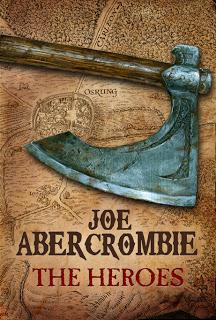 D) Even if it’s not your debut work, the first novel we read in Italy was The Heroes. It’s easy to consider it turning into a TV series, like what happened to Martin’s novels. Is there any project dealing with this? Would you like to see your characters on the screen?
J) No imminent plans. An TV or film adaptation is a great thing for the career though, so if that’s an offer of millions of dollars, my answer is yes.
D) If The Heroes becomes a tv series or movie, would you like to work on its production?
J) I’d happily do so if I was asked by the right people, but I’ve no burning desire to do it. When you sell the rights, you give it away, and I think in a way I’m more interested to see what a good film-maker would do with the material than to think about what I’d do.
D) The choice to set a whole novel in a single, huge battle is peculiar: the first doubt you encounter reading The Heroes plot is that the book could get boring or monotonous turning the pages. An unmotivated doubt since your book has an amazing and varying plot that brings up some aspects we don’t usually see in battles. Did you have to make an in-depth research on battles in the past to create such a realistic scenery?
J) I’ve always been a big reader of history, and of military history in particular. In fact these days I read a lot more non-fiction that fiction. I guess I noticed a big difference between the way warfare is presented in fantasy, with an emphasis on the glory, the heroism, and the shiny metal, and the realities of battle, where dirt, boredom and chance play big parts. I wanted to write a book that in some way married the two, and investigated the differences.
D) Men are without doubt the main characters of your novel: except for the secondary brief appearances of two wizards, there are no typical Fantasy creatures among the armies. Why did you choose not to put some of them in your book?
J) Often in fantasy we’re presented with races that are hopelessly evil, sub-human, so that our heroes can hack through hordes of them without much concern. In real life, our enemies are always other people, and hacking through hordes of people is a troubling and complicated thing. I suppose I wanted to look at the realities of that, and the costs that violence has, both on the victims and the perpetrators, so I stuck with people.
D) From who did you get inspiration to create your characters in The Heroes? Curden who always tries to do the right thing like old times, the subtle prince Calder – cryptic and double-crossing politician –, Dow the black and the others: who could they be linked to?
J) Always a difficult thing to say exactly where the ideas for a character arise from. Many of the characters in the Heroes had appeared in small ways in my previous books, but are much more fleshed out here. The central concern in the Heroes was heroism – in fantasy we often have heroes who are good in every way – heroic in motives, action and outcome. I started from the standpoint that very few people are heroic in every way and every situation, but pretty much everyone can be noble, or selfless, or brave with the right encouragement. So the characters are different balances of right and wrong, of noble and selfish. Craw tries always to do the right thing, to stand by his friends, but his code of honour forces him to do some things he knows will turn out badly. Gorst is a hero on the battlefield, but his motives are utterly selfish.
D) The Heroes is not about the epic battle between good and evil as we commonly read, but we see two not-so-different factions fight: no one is really the “good guy” fighting for justice and the political plot that moves beneath the whole battle makes no winners nor losers. The armies fight because they were ordered to, and there are moments of trembling in troops morale. What would you tell young people dealing with a battle of this kind, that seems not so different from the ones we find in our history?
J) Whether I’m writing fantasy or anything else, I want it to feel relevant, believable, honest. I want it to be saying something about our world and the people in it to feel real. In our world there are rarely good sides and evil sides, just different points of view, and people caught up in the clash between them and trying to make the best of it. I try to reflect that.
D) The editor “Gargoyle” will publish The Blade Itself – first book of the The First Law trilogy – in March 2013. This is an absolute new entry for Italian readers: could you tell us some spoiler-free anticipation? Can we expect something similar to The Heroes in some aspects?
J) Certainly The First Law takes place in the same world as The Heroes and has some characters in common. It also has, I would hope, a similar approach of a focus on a group of vivid, complex, surprising characters, a visceral approach to action and a dark sense of humour. But it’s also more consciously an epic fantasy trilogy, with the magic, mystery, politics, and epic scale you’d expect…
D) While we wait for all your novels to get published in Italy, what are you working at these days?
J) I’m never idle. I’ve been doing a couple of short stories recently, and there’s another trilogy in the works. That may take some time to appear, though.
D) Thank you for the time you spent with us, it’s been a great pleasure. Would you like to greet our readers?
J) It’s been a pleasure. Thanks for listening, and go buy my books…
D) Even if it’s not your debut work, the first novel we read in Italy was The Heroes. It’s easy to consider it turning into a TV series, like what happened to Martin’s novels. Is there any project dealing with this? Would you like to see your characters on the screen?
J) No imminent plans. An TV or film adaptation is a great thing for the career though, so if that’s an offer of millions of dollars, my answer is yes.
D) If The Heroes becomes a tv series or movie, would you like to work on its production?
J) I’d happily do so if I was asked by the right people, but I’ve no burning desire to do it. When you sell the rights, you give it away, and I think in a way I’m more interested to see what a good film-maker would do with the material than to think about what I’d do.
D) The choice to set a whole novel in a single, huge battle is peculiar: the first doubt you encounter reading The Heroes plot is that the book could get boring or monotonous turning the pages. An unmotivated doubt since your book has an amazing and varying plot that brings up some aspects we don’t usually see in battles. Did you have to make an in-depth research on battles in the past to create such a realistic scenery?
J) I’ve always been a big reader of history, and of military history in particular. In fact these days I read a lot more non-fiction that fiction. I guess I noticed a big difference between the way warfare is presented in fantasy, with an emphasis on the glory, the heroism, and the shiny metal, and the realities of battle, where dirt, boredom and chance play big parts. I wanted to write a book that in some way married the two, and investigated the differences.
D) Men are without doubt the main characters of your novel: except for the secondary brief appearances of two wizards, there are no typical Fantasy creatures among the armies. Why did you choose not to put some of them in your book?
J) Often in fantasy we’re presented with races that are hopelessly evil, sub-human, so that our heroes can hack through hordes of them without much concern. In real life, our enemies are always other people, and hacking through hordes of people is a troubling and complicated thing. I suppose I wanted to look at the realities of that, and the costs that violence has, both on the victims and the perpetrators, so I stuck with people.
D) From who did you get inspiration to create your characters in The Heroes? Curden who always tries to do the right thing like old times, the subtle prince Calder – cryptic and double-crossing politician –, Dow the black and the others: who could they be linked to?
J) Always a difficult thing to say exactly where the ideas for a character arise from. Many of the characters in the Heroes had appeared in small ways in my previous books, but are much more fleshed out here. The central concern in the Heroes was heroism – in fantasy we often have heroes who are good in every way – heroic in motives, action and outcome. I started from the standpoint that very few people are heroic in every way and every situation, but pretty much everyone can be noble, or selfless, or brave with the right encouragement. So the characters are different balances of right and wrong, of noble and selfish. Craw tries always to do the right thing, to stand by his friends, but his code of honour forces him to do some things he knows will turn out badly. Gorst is a hero on the battlefield, but his motives are utterly selfish.
D) The Heroes is not about the epic battle between good and evil as we commonly read, but we see two not-so-different factions fight: no one is really the “good guy” fighting for justice and the political plot that moves beneath the whole battle makes no winners nor losers. The armies fight because they were ordered to, and there are moments of trembling in troops morale. What would you tell young people dealing with a battle of this kind, that seems not so different from the ones we find in our history?
J) Whether I’m writing fantasy or anything else, I want it to feel relevant, believable, honest. I want it to be saying something about our world and the people in it to feel real. In our world there are rarely good sides and evil sides, just different points of view, and people caught up in the clash between them and trying to make the best of it. I try to reflect that.
D) The editor “Gargoyle” will publish The Blade Itself – first book of the The First Law trilogy – in March 2013. This is an absolute new entry for Italian readers: could you tell us some spoiler-free anticipation? Can we expect something similar to The Heroes in some aspects?
J) Certainly The First Law takes place in the same world as The Heroes and has some characters in common. It also has, I would hope, a similar approach of a focus on a group of vivid, complex, surprising characters, a visceral approach to action and a dark sense of humour. But it’s also more consciously an epic fantasy trilogy, with the magic, mystery, politics, and epic scale you’d expect…
D) While we wait for all your novels to get published in Italy, what are you working at these days?
J) I’m never idle. I’ve been doing a couple of short stories recently, and there’s another trilogy in the works. That may take some time to appear, though.
D) Thank you for the time you spent with us, it’s been a great pleasure. Would you like to greet our readers?
J) It’s been a pleasure. Thanks for listening, and go buy my books…
